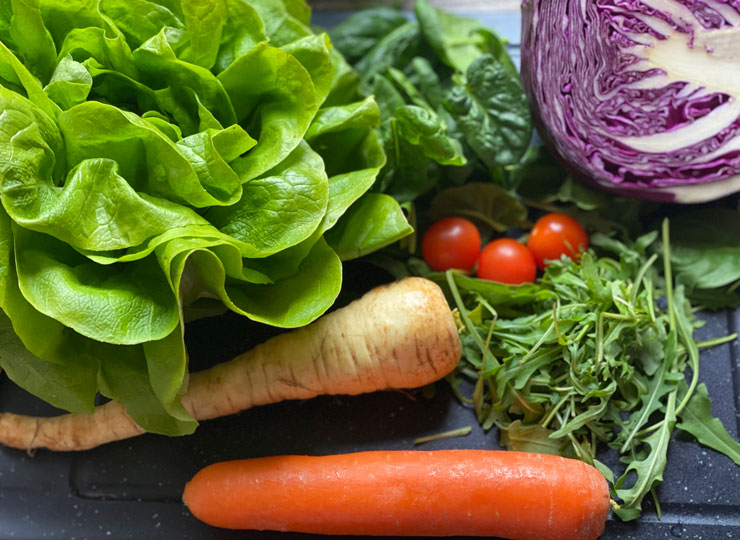
January 25, 2023
Older women and men who eat foods high in flavonols, the compounds found in many fruits, vegetables, tea and wine, have slower declines in memory skills as they age, according to a new report. The findings add to growing evidence that consuming a rich array of these healthful plant compounds is good for the brain and may even help to lower the risk of developing Alzheimer’s disease.
“It’s exciting that our study shows making specific diet choices may lead to a slower rate of cognitive decline,” said study author Dr. Thomas M. Holland of Rush University Medical Center in Chicago. “Something as simple as eating more fruits and vegetables and drinking more tea is an easy way for people to take an active role in maintaining their brain health.” The findings were published in the journal Neurology.
Flavonols are a type of plant molecules that belong to the family known as flavonoids, some of which are known to give fruits and vegetables their colors. Flavonols have antioxidant properties, which can protect cells throughout the body, including in the brain. The compounds also have anti-inflammatory effects, and increasingly, scientists link Alzheimer’s disease and other forms of dementia to increased body-wide inflammation. Earlier research by Dr. Holland’s research team found that flavonols are linked to a lower risk of developing Alzheimer’s disease. Studies in animals have also demonstrated that a flavonol-rich diet may boost learning and memory skills.
For the current study, the researchers looked at 961 men and women whose average age was 81. None had Alzheimer’s disease or other forms of dementia.
Participants filled out detailed questionnaires about the foods they ate. They also underwent yearly tests of memory and thinking skills that involved remembering lists of words and numbers. The researchers followed them for about seven years.
The study found that people who tended to eat the most foods rich in flavonols had slower declines in thinking and memory skills than those who ate the least of these plant compounds. Dr. Holland noted that the antioxidant and anti-inflammatory properties of flavonols may help to protect brain cells and the connections between them. The researchers considered such factors as age, exercise levels and whether participants smoked; flavonols appeared to be independently associated with less decline in memory skills.
The researchers also looked at four main chemical components of flavonols. Kaempferol, prominent in such foods as kale, beans, tea, spinach and broccoli, seemed to have the biggest benefits for brain health. Myricetin, found in tea, wine, kale, oranges and tomatoes, had intermediate benefits for brain health. And quercetin, found in tomatoes, kale, apples and tea, was slightly less beneficial. Only isorhamnetin, found in pears, olive oil, wine and tomato sauce, was not linked to slower cognitive decline.
The authors point out that the study shows an association between higher amounts of dietary flavonols and slower cognitive decline, but it does not prove that flavonols directly cause a slower rate of cognitive decline. But the findings add to growing evidence that what we eat impacts brain health. A diet high in fruits and vegetables has been tied to better heart health as well, and growing evidence shows that what’s good for the heart is good for the brain.
As our population ages and the number of people with Alzheimer’s disease continues to grow, any intervention that may help to boost brain health, or delay the onset of dementia, is a good thing. Whatever your age, and especially for those over 50 who are at higher risk of Alzheimer’s disease, including a colorful array of fruits and vegetables in your diet may be a wise investment in brain health. And a final note: Flavonols are typically concentrated in the skin and leaves of fruits and vegetables, so don’t peel your produce too much!
By ALZinfo.org, The Alzheimer’s Information Site. Reviewed by Marc Flajolet, Ph.D., Fisher Center for Alzheimer’s Research Foundation at The Rockefeller University.
Source: Thomas Monroe Holland, Agarwal Yamin Wang, Klodian Dhana, et al: “Association of Dietary Intake of Flavonols With Changes in Global Cognition and Several Cognitive Abilities.” Neurology, November 22, 2022











